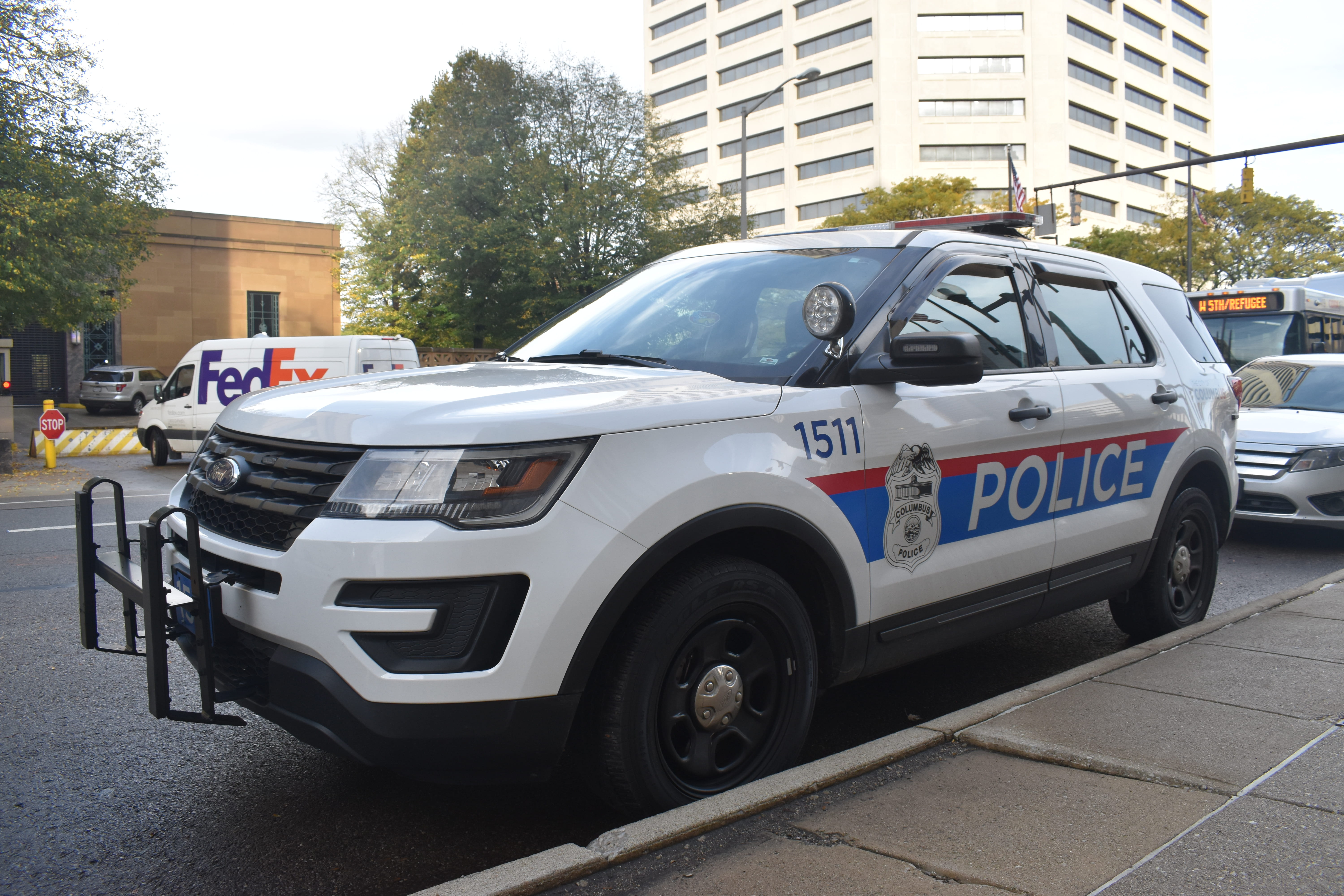
Columbus voters are projected to approve a ballot initiative Tuesday to establish a Civilian Police Review Board that will oversee investigations of misconduct by Columbus police officers. Credit: Mackenzie Shanklin | Photo Editor
Columbus voters are projected to approve a ballot initiative Tuesday to establish a Civilian Police Review Board that will oversee investigations of misconduct by Columbus police officers.
With preliminary results showing the initiative will pass with 74.3 percent support with all precincts reported and only absentee ballots not received by boards of elections prior to Election Day to be counted, Issue 2 enacts funding for a board independent of the Columbus Police to receive and launch investigations into complaints of police misconduct. Ohio accepts absentee ballots 10 days after the election as long as they are postmarked by the Monday before the election.
According to the charter amendment, the board — made up of members representative of the demographics of Columbus communities — will have subpoena power to obtain evidence and call witnesses, recommend resolutions to complaints and offer disciplinary measures.
The charter amendment also secures funding to establish the Department of the Inspector General, who will be confirmed by the mayor and serve under the guidance of the Civilian Police Review Board.
“For the first time, Columbus residents were able to vote on police reform, and we hear them loud and clear,” Columbus Mayor Andrew Ginther said Tuesday in an interview with The Lantern.
Although Ginther said the Civilian Police Review Board will “go a long way to build trust between the police and the community,” the city of Columbus is far from finished in its police reform efforts.
“We’re looking now at ways to reallocate resources by investing in social services, mental health emergencies and addiction costs,” Ginther said. “That will help our police focus their attention on keeping neighborhoods safe.”
Ginther signed the charter amendment July 20 after dozens of police misconduct complaints were filed during summer protests calling for justice for George Floyd, Breonna Taylor, Tony McDade and other Black individuals killed by police. The Columbus City Council approved the charter amendment July 27.
The Lantern filed a citizen complaint after three Lantern editors were pepper sprayed by Columbus Police during protests at Lane Avenue and North High Street June 1 after identifying themselves as members of the press, who, according to the mayor’s order, were exempt from the citywide curfew.
Columbus law firm BakerHostetler investigated 36 complaints of police misconduct from the summer, which resulted in only one sustained instance of misconduct, Ginther said in a September press conference.
“I was surprised, and in many cases, angered at the results,” Ginther said in the press conference. “The results from these investigations prove to me more clearly than ever before the need for police reform.”
Keith Ferrell, president of the Fraternal Order of Police Capital City Lodge No. 9, said in a July press release that Ginther’s Civilian Police Review Board is a “waste” of taxpayer money and infringes upon the rights of the FOP to negotiate employment conditions on behalf of Columbus police officers.
“We welcome dialogue and to use the collective bargaining process to move forward for everyone, but Mayor Ginther is not out to compromise,” Ferrell said. “Mayor Ginther is out to attack collective bargaining rights, plain and simple.”
Ferrell said in a June press conference that the establishment of a Civilian Police Review Board is futile, as the body cameras Columbus Police officers wear provide “full transparency” to events pertaining to arrests.
Ferrell did not respond for comment by the time of publication.
In a letter addressed to former University President Michael V. Drake and other administrators in June, three student government groups demanded Ohio State sever ties with Columbus Police after impact rounds such as wood pellets, chemical agents and other tactics deemed “aggressive” by Ginther were deployed against protesters, including Ohio State students.
“We, the student representatives of The Ohio State University, firmly and without hesitation, condemn the violent and inexcusable actions of the Columbus Police Department during these protests and the harm the department has caused Black and marginalized communities for decades,” the letter states.
Moving forward, Ginther said a working group, established in July amid early discussions of the creation of a Civilian Police Review Board, will meet Nov. 10 to offer recommendations on best practices for the board. Ginther said he expects a decision regarding who will sit on the board “as quickly as possible,” and those selected — including representatives from law enforcement — will undergo training regarding how Columbus Police operates.
Ginther said the city will “engage in good faith negotiations” with the FOP regarding a few aspects of the Civilian Police Review Board, as the FOP’s contract with the city is in place until the end of the year.
“We’ll continue to root out racism wherever we find it — in the division of police or elsewhere,” Ginther said.
Update: This article was updated Wednesday at 10:25 a.m. with voting data from all reporting election precincts.


